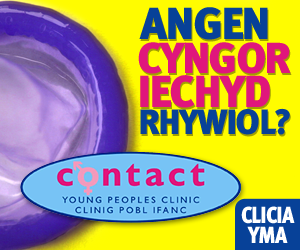WORLD AIDS DAY
What is World AIDS Day?
World AIDS Day emerged as the first international health day in December 1988 to try to halt the spread of HIV and AIDS. Each year the campaign is an opportunity for organisations throughout the world to highlight the HIV pandemic in order to raise awareness and bring about change.
What is AIDS?
AIDS stands for Acquired Immune Deficiency Syndrome. A person is considered to have AIDS when the immune system has become so weak that it can no longer fight off a whole range of diseases with which it would normally cope. If HIV is diagnosed late, treatment may be less effective in preventing AIDS.
What is HIV?
HIV is a virus that attacks the body's immune system-the body's defence against diseases. A person infected with HIV may not have symptoms to start with, but eventually without effective treatment the immune system will become very weak and they will no longer be able to fight off illnesses.
Are HIV and AIDS the same?
No. When someone is described as HIV positive, they have the HIV virus in their body. A person is considered to have developed AIDS when the immune system is so weak it can no longer fight off a range of diseases with which it would normally cope.
Is there a cure for HIV?
No, but treatment can keep the virus under control and the immune system healthy. People on HIV treatment can live a healthy, active life, although they may experience side effects from the treatment. If HIV is diagnosed late, treatment may be less effective in preventing AIDS.
How is HIV passed on?
HIV can be passed on through infected blood, semen, vaginal fluids or breast milk. The most common ways HIV is passed on are:
Sex without a condom with someone living with HIV
Sharing infected needles, syringes or other injecting drug equipment
From an HIV-positive mother (to her child) during pregnancy, childbirth or breastfeeding
Can you get HIV from oral sex?
Oral sex carries a much lower risk than penetrative sex, but HIV can still be passed on through cuts, gum problems or ulcers in the mouth if they come into contact with infected bodily fluids.
But HIV cannot be passed on through:
Kissing or touching
Spitting, coughing or sneezing
Toilet seats, swimming pools, or shared facilities or utensils
Could I get HIV?
If you are sexually active or share needles you could be at risk from getting HIV. Although anyone can become infected, some communities in the
How can I protect myself from HIV?
Always use a condom when having vaginal or anal sex. You also may want to use a condom or dental dam during oral sex, although the risk of transmission of HIV is much lower. Always use a condom that carries the European CE safety mark. You can get free condoms from a family planning or sexual health clinic, which you can locate at www.fpa.org.uk/finder/. Never share needles, syringes or any other injecting equipment.
What do I do if I think I have put myself at risk?
If you think you have placed yourself at risk from infection by HIV you can ask for a free and confidential test at your local sexual health clinic.
If you are within 72 hours of an incident of possible exposure to HIV, ask for PEP (Post Exposure Prophylaxis) treatment from a sexual health clinic or at your nearest hospital accident and emergency department. The sooner treatment is begun the higher the probability the treatment will be effective. Find out more about PEP at www.tht.org.uk/pep.
Some statistics on HIV :
33.4 million people living with HIV worldwide in 2008
HIV-related deaths in 2008: 2.0 million total deaths
More than 85,000 people living with HIV in the
7,298 new HIV diagnoses in 2008 in the
More than 2000 people aged 16 to 24 are being treated for HIV in the
One in three people with HIV is undiagnosed
Why do we wear red ribbons to mark World AIDS day?
The red ribbon is worn as a sign of support for people living with HIV. Wearing a red ribbon for World AIDS Day is a simple and powerful way to challenge the stigma and prejudice surrounding HIV and AIDS that prevents us from tackling HIV in the UK and internationally.
Sources of information and advice
Avert www.avert.org
National AIDS Trust www.nat.org.uk Tel: 020 7814 6767
Email: info@nat.org.uk
Terrence Higgins Trust www.tht.org.uk Tel: 0845 122 1200
Email: info@tht.org.uk
Sexual Health Helpline www.condomessentialwear.co.uk Tel: 0800 567123
(testing for sexually transmitted infections)
Contact Clinic (based at Info) Tel: 01978 358900(Mon/Wed/Fri 3- 5.30pm)
2 North Arcade, Chester Street, Wrexham www.youngwrexham.co.uk








